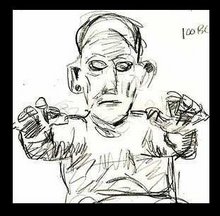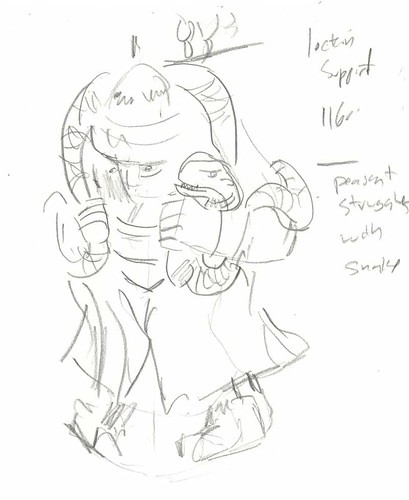 Violence: Reflections on a National Epidemic by James Gilligan
Violence: Reflections on a National Epidemic by James GilliganMy rating: 4 of 5 stars
If you are going to read and talk about Violence, THROW AWAY your copy of Violence by Slavoj Zižek. THIS ONE by James Gilligan goes in deep to the heart of darkness where violence thrives. He starts in prisons, with the most violent people you could find. It is a hell of a starting point.
While Zižek throws around Heidegger and Lacan and Nip-Tuck TV, Gilligan steps in close and examines violence in its pain, and cause and consequence.
My short summary: Violence springs from Loss of face, which is really loss of self and out of that comes shame. And this shame brings a feeling of injustice that can only be addressed by violence. The thing to remember, in the eyes of the violent person all the pain that is inflicted by them has a logic of its own. Sometimes (or maybe usually) it is not articulated, but the violence in its horror is a symbolic expression of an inner conclusion that must be expressed by the aggrieved.
He does a pretty good job of pointing out “...the motives and goals that underlie crime are the same that underlie punishment...”. Pg. 18. So that much of the book looks at the criminal, but the other horror is the criminal justice system and prisons in particular. Crime and punishment are mirrors to each other. The criminal is addressing a perceived injustice and dispensing appropriate (in the criminal's eyes) retaliation. Then the criminal justice system uses laws to assign guilt and follow through with punishment.
And it gets worse with each chapter, because we find that criminal punishment is the best way to make sure it happens again. Plus there is unacknowledged sadism in criminal punishment that clearly mimics the sadism of the criminal and both rely on excluding empathy as a consideration.
Punishment feeds shame which grows violence which causes crime which results is moral outrage which justifies punishment....
“Punishment is almost universally rationalized as a means of preventing violence...But the conclusion that my analysis leads to is that punishment does not inhibit or prevent crime or violence...Punishment stimulates violence; punishment causes it.” Pg. 183.
He does not whitewash human nature, and admits violent behavior is "built into the very structure and functioning" of us humans. But these actions must be "triggered" by something and his contention is society itself prepares the way so many people are primed to react in a violent way.
From his time talking to criminals he comes up with a list of things we should NOT do if we want to avoid triggers that bring about violence. Some items are arguable but overall...seems about right.
1. Punish and imprison more and more people to increase shame and bring on more violence so there are more to punish and imprison...
2. Outlaw drugs that inhibit violence and encourage use of those that increase violence
3. Arrange taxes and policies to increase the wealth disparity
4. Deprive poor access to education to increase shame to cause more violence and crime
5. Perpetuate a caste system that falls along racial lines.
6. Expose the public to views that glorifies violence as male masculinity
7. Make lethal weapons easily available
8. Maximize polarization social roles of men and women and divide men into violent objects and women into sex objects
9. Encourage prejudice of homosexuals
10. Legitimize corporal punishment in schools and at home
11. Regulate economy so unemployment will never be abolished
Of course most conservative political types will balk at any suggestion that society has any responsibility in this matter. But that is really making his point, that "society" itself is part of a larger structural violence since its very philosophy encourages the expansion of violent norms that just happens to result in a world of increasing disparity between the poor and moneyed elite.
Lest I forget, one message everybody should learn from this book...NEVER DO TIME! If only for this one statistic on the frequency of rape in prison...
"That would still leave a total figure of 900,000 male rapes a year - as an integral part of the punishment to which prisoners are subjected to in the prisons and jails of this country. "Pg. 176
Yes, rape by the meanest of the mean in prison, is part of the way understaffed prisons contain the violence in those walls. EVERYBODY knows about it who is associated with the penal system.
Moving on...Sometimes he pushes the emotion envelope towards sappiness about love
"…a soul empty of love fills with hate" Pg. 53.
But I kind of think he is right. And I feel better now.
====
I am reminded of Ceremony by Leslie Marmon Silko where the key to the tale is the belief that the modern disregard for the natural world is caused by destroyers that tricked the white men into pursuing their march of destruction, thinking it a virtue while actually killing our souls.
There is a poem in the book describing the witchery world view that is eerie in its similarity to the death of “the self” described by Gilligan.
They see no life
When they look
they see only objects.
The world is a dead thing for them
the trees and the rivers are not alive
the trees and rivers are not alive.
The deer and bear are objects
they see no life
pg 135 of Ceremony by Leslie Marmon Silko
===
And a final thought, this really does compliment Age of Empathy by Franz de Waal that I read last year. In which he definitely mentions brutal violence by some of the great apes, but he also showed how there was empathy. In fact he was going for something similar as Gilligan by identifying things that would "trigger" these outbursts and what situations diffused them.
Which leads to the question, can we as humans be better at arranging our society to prevent violence? OR are we doomed just to be very clever chimps with cool toys, ignoring empathy and compassion because of an ever escalating arrangement of violent triggers?
And the 8-Ball says..."Outlook not so good"
View all my reviews



1 comment:
Very, very interesting. Yeah, I'm not super hopeful. I will do my best to never do time.
Post a Comment